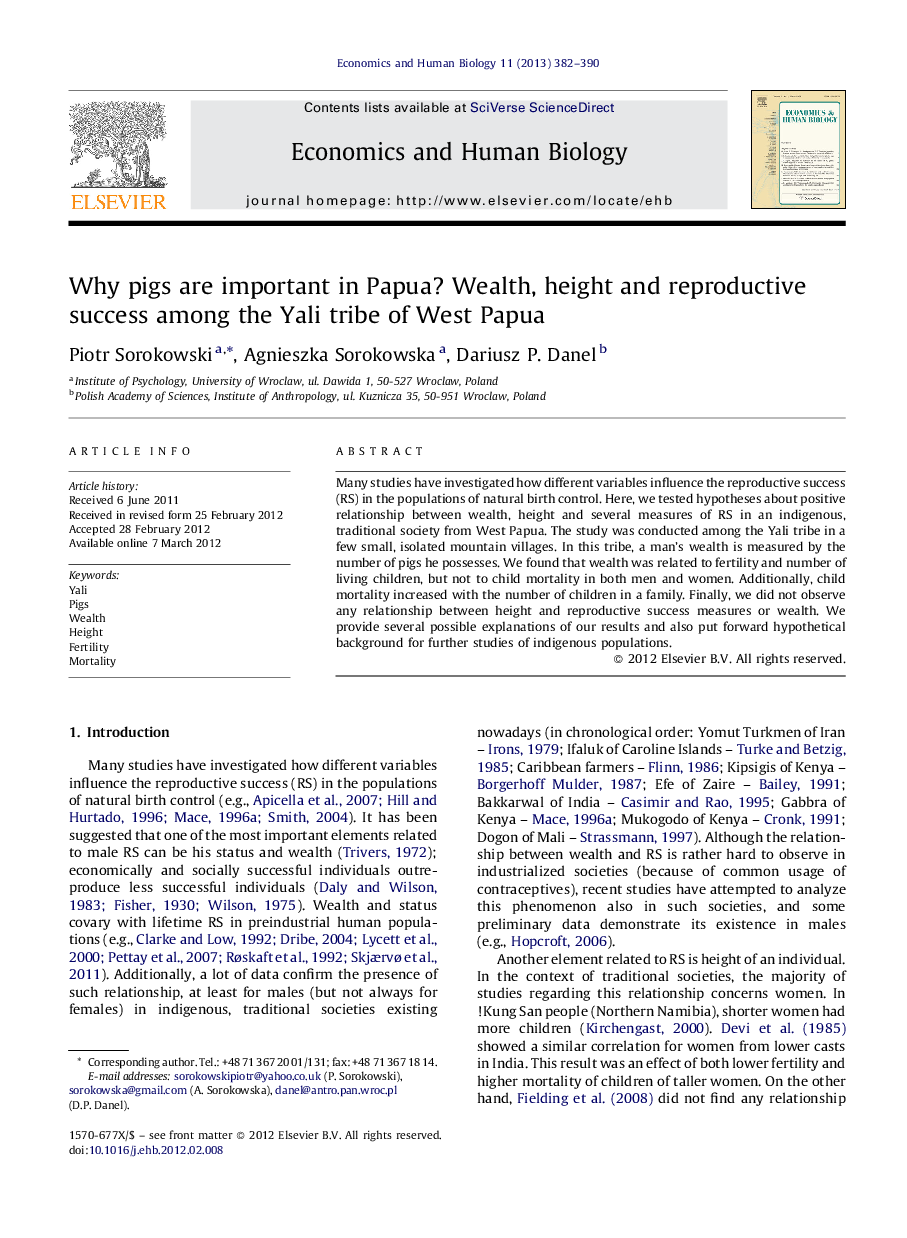| Article ID | Journal | Published Year | Pages | File Type |
|---|---|---|---|---|
| 5057033 | Economics & Human Biology | 2013 | 9 Pages |
Many studies have investigated how different variables influence the reproductive success (RS) in the populations of natural birth control. Here, we tested hypotheses about positive relationship between wealth, height and several measures of RS in an indigenous, traditional society from West Papua. The study was conducted among the Yali tribe in a few small, isolated mountain villages. In this tribe, a man's wealth is measured by the number of pigs he possesses. We found that wealth was related to fertility and number of living children, but not to child mortality in both men and women. Additionally, child mortality increased with the number of children in a family. Finally, we did not observe any relationship between height and reproductive success measures or wealth. We provide several possible explanations of our results and also put forward hypothetical background for further studies of indigenous populations.
⺠Wealth should increase the reproductive success, at least in populations of natural birth control. ⺠We tested this hypothesis in indigenous Yali tribe from West Papua. ⺠The wealth (number of pigs) was related to reproductive success in both men and women. ⺠Children mortality was increasing with the number of children in a family. ⺠The parental height did not relate to the fertility and mortality measures.
